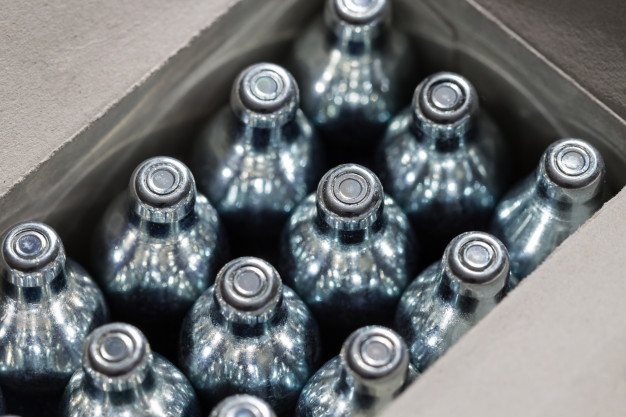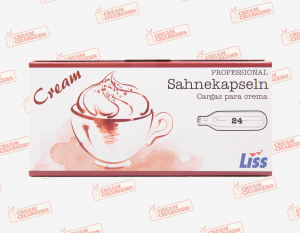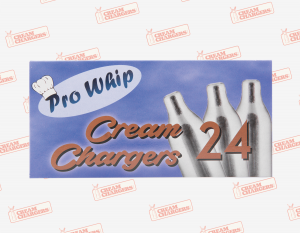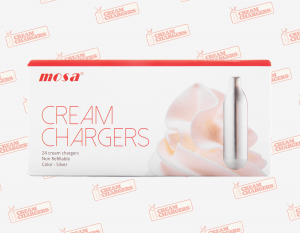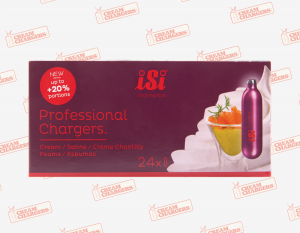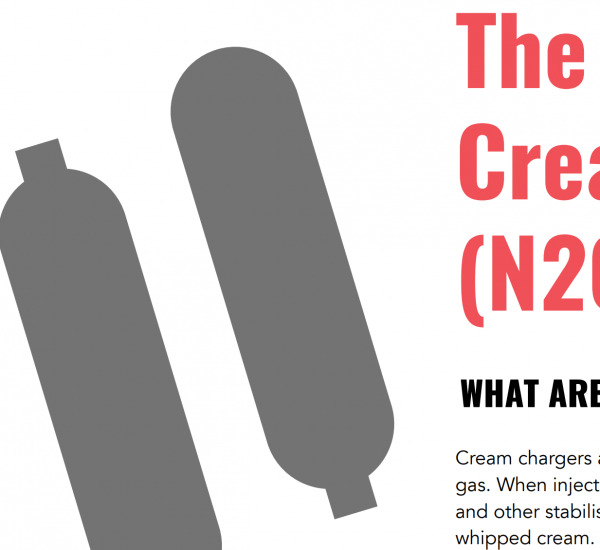Cream chargers have gone from strength to strength since their inception in the mid-20th century. With the ability to inject pressurised gas (nitrous oxide, or N2O) into a liquid and aerate it safely and efficiently, they have been used for a wide range of purposes, primarily in the food and drink industry.
As well as being used in a professional capacity, they are increasingly popular in a domestic setting, as more and more people emulate the experts and create their own gastronomic masterpieces at home. As long as amateur chefs use only recognised and reputable brands, such as ISI, Liss and Mosa, and stick to the manufacturer’s guidelines when operating them, they’re perfectly safe and easy to use.
But what are cream chargers used for, exactly?
Culinary uses of cream chargers
The vast majority of uses to which cream chargers can be put take place in kitchen. Here’s a quick rundown of the applications which you can try out at home:
- Whipped cream. The most famous and most commonplace application of cream chargers is to use them to whip cream. When the N2O in a cream charger canister is injected into cream, it reacts with the fats, gelatines and other stabilising agents in the substance, resulting in a foamy texture. Since N2O naturally occurs in our environmentally, it’s possible to whip cream manually – but a cream charger is much faster and easier than whipping cream by hand.
- Mousses and desserts. Anyone who has spent any amount of time try to whip up the perfect mousse will know it’s no cakewalk (excuse the pun!). In the same way that whipping cream is something of an exact science, it’s a tricky balancing act to ensure you make your peaks just stiff enough for purpose – but with a cream charger, that process is turned into mere child’s play.
- Alcoholic cocktails. Foams and espumas are an aesthetically pleasing addition to a wide variety of cocktails, but the traditional method of making them (shaking egg whites in a shaker) takes time and no small amount of elbow grease. What’s more, egg white foam is often flavourless to the taste and unpleasant on the nostrils. Using a cream charger allows you to add zing, aroma and panache to your drink quickly and easily, which is all important in a busy cocktail bar.
- Infusing alcohol, oil, sauces, syrups and marinades. Following on from the previous point, you can also use cream chargers to infuse alcohol with a particular taste of your choosing… and this technique isn’t limited to booze, either. By placing the desired contents in the container of the dispenser and injecting them with N2O, you can rapidly accelerate the infusion process in oils, sauces, syrups or marinades. What once took weeks now takes mere minutes.
- Carbonated drinks. Cream chargers operate on the same basic principle as soda streams, with the only major difference between that the former use N2O and the latter employ carbon dioxide (CO2). However, you can easily substitute one for the other and use your cream charger to create deliciously fizzy juices of all flavours, even using real fruit to create a natural carbonated juice if you so desire.
For anyone who has an interest in learning more about the countless gastronomic possibilities available when using a cream charger in the kitchen, ISI offers a range of exciting recipes online, while more complex experiments in hydrocolloid cooking can be found here.
One secondary application of cream chargers is in as an oxidising agent in hybrid model rocket engines, though that’s a far more specialised use of the product and one that isn’t recommended for armchair rocket scientists without the appropriate education and training. Stick to the kitchen and you can’t go wrong!
Different brands of cream chargers and how they look
Below we have Liss, Pro Whip, Mosa, and ISI cream chargers. These are the most popular brands.

